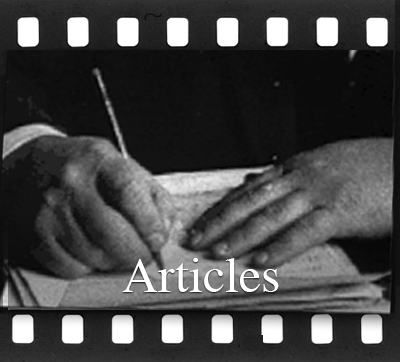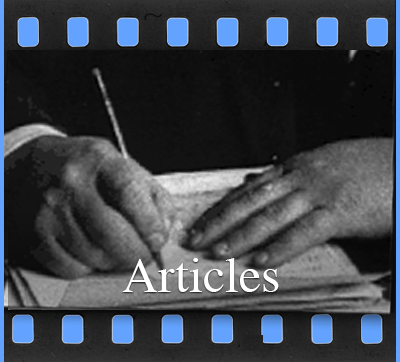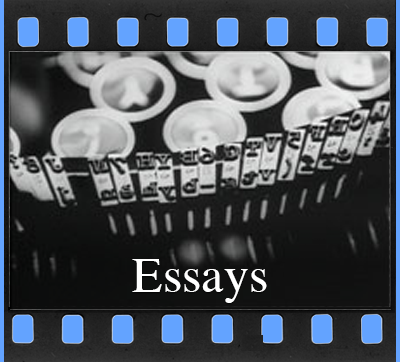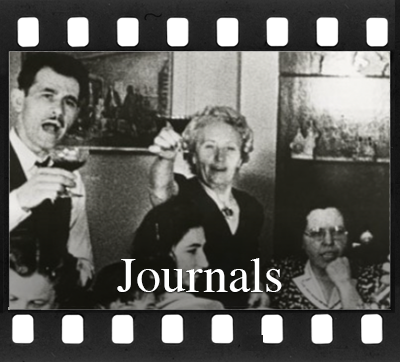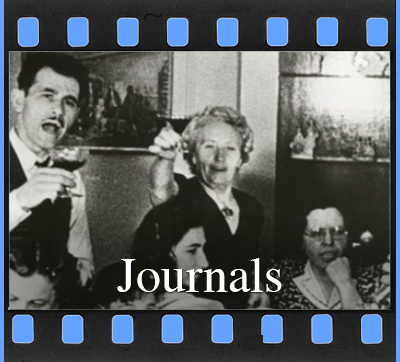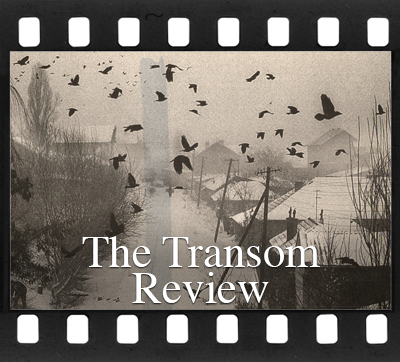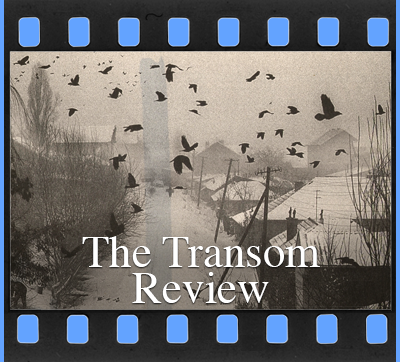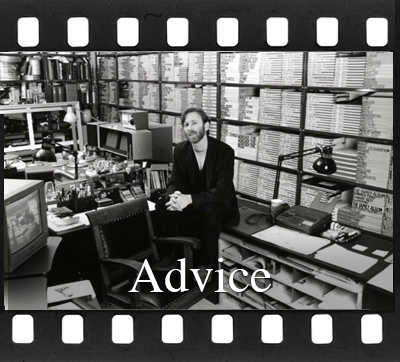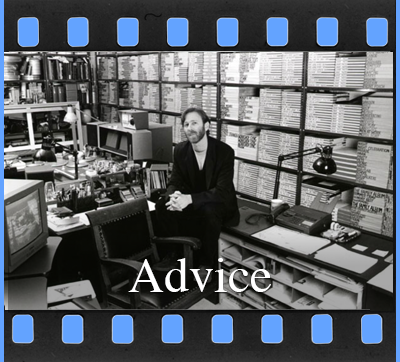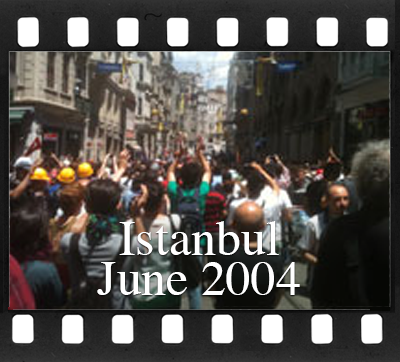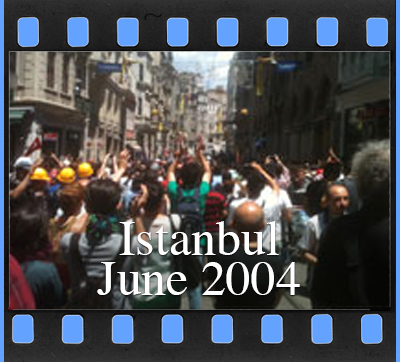Rockefeller Foundation
20th ANNIVERSARY CATALOGUE
Hallelujah. You’ve been nominated. Someone who’s been following your career thinks you’re worthy of Rockefeller Foundation support. You’ve been invited to present yourself -- your work and the ideas that inspire it -- to one of the most thoughtful, sophisticated, and artist-friendly foundation initiatives anywhere. Whether your project is in the final stages of editing, the early stages of production, or just a vague concept that exists somewhere inside your head, this is your chance to apply for one of the most meaningful awards in the entire media art world. But don’t celebrate too must just yet – there’s some work to be done.
I’ve never met a filmmaker who wouldn’t agree that the process of writing a grant proposal hasn’t helped them make a better film. As annoying and arduous as it may be, there’s no better callisthenic for toning up your relationship to a project. The challenge of formulating, focusing and then translating your ideas and inspirations into the language of words cannot help but lead you towards a kind of self-discovery, even epiphany. For many of us preparing a grant proposal has become a rite of passage -- an unacknowledged and/but critical phase of pre-production. Whether or not your application is successful, the very act of preparing it can’t help but push you towards a deeper understanding of your project.
The application will also ask you to compose an “artist statement,” a chance to express the underlying poetics, politics, aspirations and urgings that drive you to make films in the first place. You’re being asked to say things you’ve never quite known how to say, things you never thought needed to be said -- perhaps even things you’ve always wanted to say, but never quite knew how to put into words. This is an opportunity to confront the “why” of your work, to place yourself in a historical context, to talk about other artists, movements, and philosophies that inspire you; in short: to approach (as far as words will take you) the ineffable soul of your work.
Over the years, I’ve had the very good fortune of being on all three sides of the Rockefeller Foundation Film and Video Fellowship application process. In 1993 I was nominated for and then had the good fortune to receive a fellowship for a fledgling work in progress that ultimately became my film, Nobody’s Business. The following year I was asked to be a nominator, and in 2003, I was invited to serve on the granting panel itself, one of the most impressively thorough, generous, and intellectually honest juries I’ve ever been a part of – and an experience that made me value my own fellowship grant that much more.
A few thoughts about being on the panel. In many ways the very idea of competing for grants (and even film festival prizes for that matter) is profoundly problematic. Works of art and the subtlety (let alone the multiplicity) of ideas, philosophies and aesthetics that drive them are so different, how can it be possible to truly evaluate one body of work against another? By what scale do you measure artistic commitment, accomplishment, innovation or even “promise?” How can you even begin to define a meritocracy in the realm of art, arguably the last safe haven of idiosyncrasy, individuality and independence? You can’t. At least not easily.
And yet each year for the past 20 years Rockefeller Foundation Media Arts panels (each a uniquely assembled equation that both mirrors and balances the diverse topography of the media arts landscape), have managed to negotiate the full spectrum of documentary, narrative, experimental, animation, video installation (and the blurring of boundaries betwixt and between them), to select 14 projects (from up to 120 nominations) for fellowships. There’s no way to describe the dynamics of each panel’s unique chemistry, (if you’ve ever been on a jury you’ll understand), except to say that it’s an amazing, if daunting process – and ultimately, nothing less than a crash course in the state of the art of independent media-making at a particular moment in time. And for the record, copious notes are taken throughout the weeklong deliberations; it’s one of the few funding processes that actually allows, even encourages you to call up and ask what the panel thought of your work.
If you received a “good news” telephone call, it’s time to capitalize the “c” in “Celebrate.” There’s some real money coming your way ($35,000 of it to be precise) that will put a lot of gas in your tank and buy you a lot of groceries. Your project now has the cachet that comes with being a Rockefeller Foundation “Fellow” -- a factor that should make it easier to find additional funding for your project (and hopefully others in the future). But beyond all of that, you cannot put a value on the transcendent impact your Fellowship can and will have on you and your work in the days (and years) ahead.
A Rockefeller Fellowship is a profound acknowledgement. An affirmation. A subtle but powerful force that can (and does) change the way the independent film/video/media community looks at you. But even more importantly, it can (and will) change the way you look at yourself. Over the years, your life as an artist is certain to be punctuated by countless markers, milestones, psychic (and aesthetic) deaths, rebirths and creative reinventions. For the moment at least, the affirmation of your Fellowship brings with it a welcome burst of oxygen, encouraging you to breathe more freely, to try new things, to take chances, to dare make mistakes – to take that next major step forward in your journey as an artist. That, more than anything else is the true gift of your Fellowship.
And if you didn’t get that phone call, let’s hope you’ll be nominated again in the near future. At very least you have an impressive new line to add to your resume, you and your work are now well known by members of the panel (some of whom may serve again one day), and last but not least, your relationship to your project has surely benefited from the process of writing your grant proposal and artist statement. Don’t forget to call up and ask for feedback about your work. When all is said and done, even just a nomination for a Rockefeller Foundation Film and Video Fellowship will help propel you and your work forward in more ways than meet the eye.
- ◻ Gathering Stones
- ◻ PATIENCE & PASSION
- ◻ TOP TEN FILMS (IDFA)
- ◻ WIDE AWAKE DIRECTOR'S STATEMENT
- ◻ LIKE MY FATHER BEFORE ME
- ◻ MAN WITH A MOVIE CAMERA
- ◻ ICE FISHING AND SKYWAYS
- ◻ OUTSIDE LOOKING IN
- ✓ ROCKEFELLER FOUNDATION 20TH ANNIVERSARY
- ◻ WHY Alan Berliner WATCHES HIS FILMS WITH AN AUDIENCE EVERY CHANCE HE GETS

